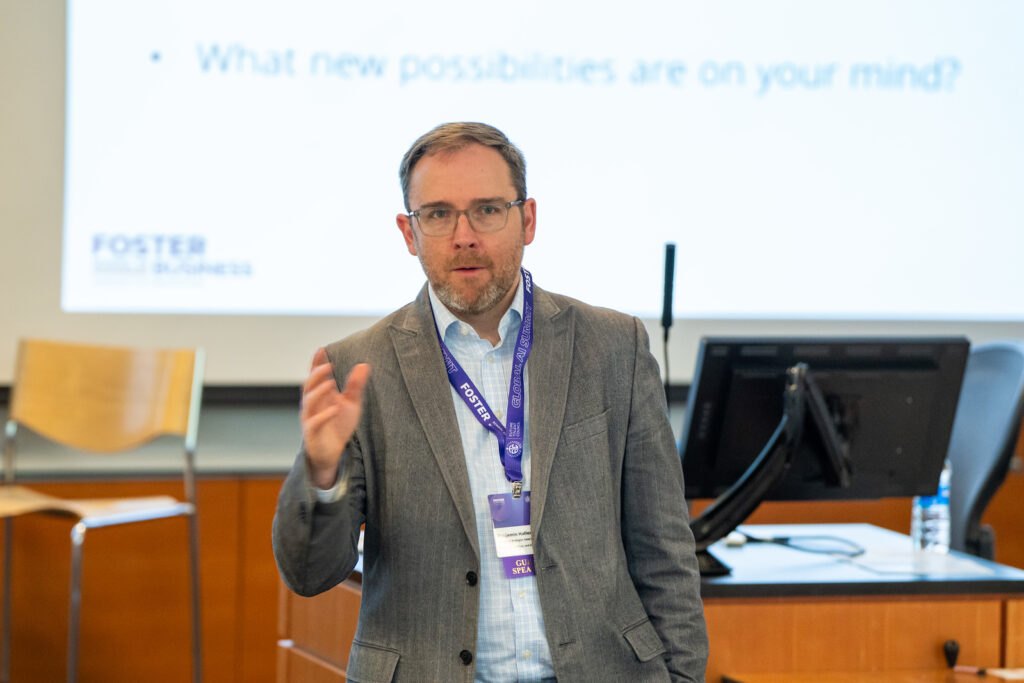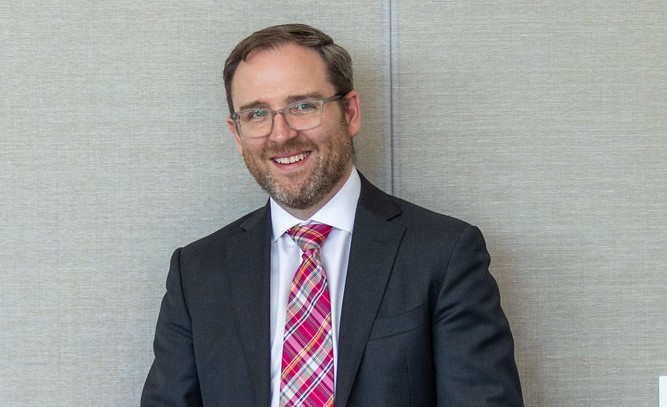Startups Best Off Building Business, Not Chasing Buzz
A study by Benjamin Hallen shows startups should prioritize discipline and patience over speed
In the fast-moving world of startups, speed is glorified. Founders are urged to “move fast, break things,” “blitzscale,” and “grow or die.” Yet for every unicorn that rockets to fame, a thousand others flame out. What separates the few that flourish from the many that fade?
A new study by Foster School of Business Professor Benjamin Hallen and co-authors from Meta and Stanford University offers a surprising answer. Their field study challenges the dominant startup growth narrative that equates early buzzy growth with long-term potential. Exceptional growth isn’t about scaling faster. It’s about knowing how to grow and when.
By showing how attention on unit profitability drives early learning and then later superior scaling, the authors offer a fresh lens for how promising young firms grow into mature ones. It is not a luck or brute force, but rather foundation-first strategy.
The importance of unit-level profitability for startup growth
Their research, titled “Measure Twice, Cut Once: Unit Profitability, Scalability, and the Exceptional Growth of New Firms” and published in Organization Science, traces the decade-long journeys of six early-stage companies in the online fashion industry. Each was well-funded and promising. Each had smart, pedigreed founders and early traction. Yet in every matched pair, only one firm made the leap from startup to mature company. The others stalled, stumbled, or quietly exited.
What made the difference? Hallen found it wasn’t talent, timing, or technology. Instead, it was where leaders focused their energy during the critical early years.
“We saw a consistent pattern,” says Hallen. “The companies that ultimately scaled did not chase growth at the outset. They first focused obsessively on understanding whether their business could be profitable at the unit level—then used that knowledge to build the capabilities that allowed them to grow.”

A two-phased approach to scaling pays off
Hallen and his co-authors describe a two-act process followed by the successful companies. First, a learning phase grounded in unit profitability; then, a capability-building phase designed to build the right strengths for scalable growth.
In the first act, the winners focused not on acquiring users but on developing a deep understanding of their business model. They dissected every component of a single transaction: revenue, costs, logistics, pricing, customer behavior. This was an intentional decision to delay growth, even in the face of investor pressure.
Building long-term viable models separates the stars from those that get stuck
One firm, referred to as “StyleStar” in the anonymized study, built a personalized retail model that shipped clothing selections to customers based on stylist-curated algorithms. Its founders avoided paid marketing, capped growth through waitlists, and ran frequent experiments to refine their cost structure and product–market fit. “The first year was just about proving this works,” the CEO said in an interview. “Do the economics work? Will we make money?”
Their patience paid off. Over time, StyleStar simplified its offering, eliminated unprofitable features, and built a model that was both appealing to customers and financially viable. Six years after launch, StyleStar had become a billion-dollar company with thousands of employees and a successful IPO behind it.
By contrast, its peer “StyleStuck” launched quickly and leaned into growth. The team set aggressive sales goals and invested heavily in customer acquisition. But they never resolved whether each order could be fulfilled profitably. “We didn’t know if we could ever get our cost of goods low enough,” the CEO admitted.
StyleStuck ultimately failed to achieve sustainable profitability and exited through a discounted acquisition.

Startup growth isn’t about hacks, followers or shortcuts
Once the successful firms had confirmed unit-level profitability, they didn’t just scale up. They entered a second phase: capability building. This wasn’t about growth hacks, social media followers, or flashy influencer partnerships. It was about investing in systems and talent to build the right capabilities to support efficient, scalable growth.
In one case, a rental startup built a hybrid logistics platform that blended AI with human operations. Others focused on digital infrastructure, customer service automation, or proprietary algorithms. Each investment was closely aligned with their refined understanding of how to grow profitably.
Their less successful counterparts either skipped this phase or pursued it without a sound unit-profitable business model. One firm added new services before fixing their complex business model, including weak logistics. Another pivoted to a peer-to-peer platform without addressing unit losses on every transaction. None had built the organizational scaffolding to support expansion.
“What we’re seeing,” Hallen notes, “is that the foundation for exceptional startup growth is laid before growth even begins. It’s about what founders focus on when no one’s watching—when the pressure to scale is loudest, but the need to learn is greatest.”
Rethinking a startup’s key metrics
Hallen and his colleagues offer a novel benchmark for startup businesses: product–market–profit fit. Not just customer demand. Not just traction. Successful firms developed a business model that works transaction by transaction and had leaders who resist the temptation to scale before they are ready.
Or, as one venture capitalist interviewed for the study puts it: “Growth solves many problems, but unit economics is not one of them.”
Learn more about Foster faculty research.
